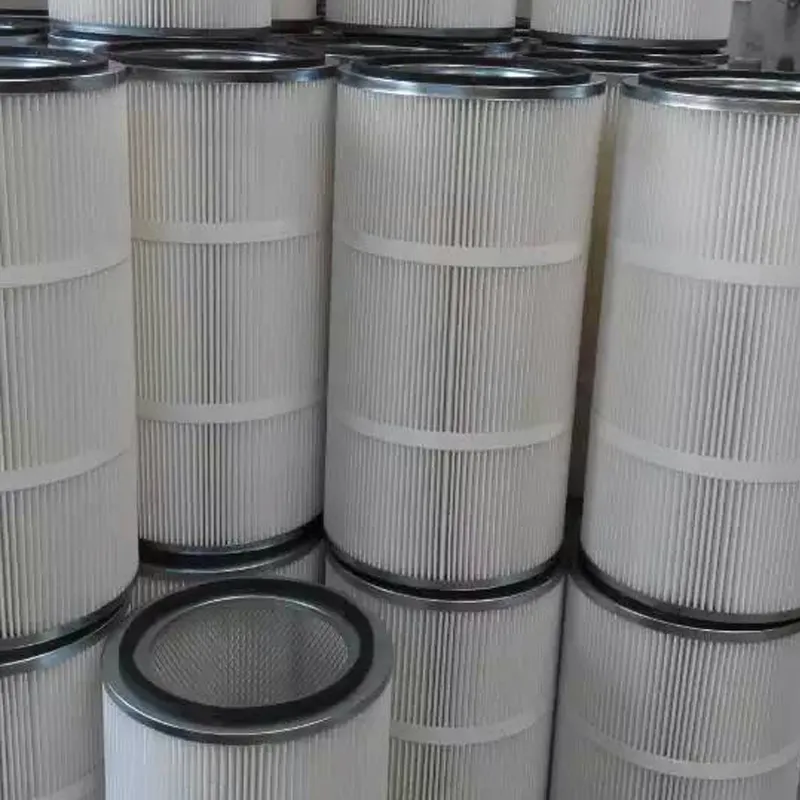 Tel:
+8615930870079
Tel:
+8615930870079
8월 . 05, 2024 20:54 Back to list
Understanding the Functionality and Benefits of Cartridge Vacuum Filters in Industrial Applications
The Versatility and Efficiency of Cartridge Vacuum Filters
Cartridge vacuum filters are a crucial component in various industrial processes, particularly in the mining, food and beverage, and chemical sectors. These filters operate on the principle of vacuum filtration, employing a series of cartridges to separate solid particles from liquids. Their increasing popularity can be attributed to their efficiency, versatility, and ability to enhance productivity in numerous applications.
What is a Cartridge Vacuum Filter?
Cartridge vacuum filters consist of cylindrical filter elements that are filled with a porous material. When a vacuum is applied, liquid is drawn through the cartridges, which capture solid particles while allowing the clean liquid to pass through. This process not only facilitates effective filtration but also ensures that the liquids retained are of high purity, essential in industries where product quality is paramount.
Advantages of Cartridge Vacuum Filters
1. High Filtration Efficiency One of the primary advantages of cartridge vacuum filters is their high filtration efficiency. The design allows for a large surface area in a compact format, which enables a significant volume of liquid to be filtered in a relatively short amount of time. This efficiency leads to increased throughput and reduced operational costs.
2. Versatility Cartridge vacuum filters can handle a wide range of materials, from fine particulates to larger solids. This versatility makes them suitable for various applications, whether it involves separating valuable minerals from ore, filtering beverages, or processing wastewater. The ability to customize the filter media according to specific requirements further extends their application range.
cartridge vacuum filter

3. Reduced Maintenance Compared to traditional filtration systems, cartridge vacuum filters require less maintenance. The cartridges can often be replaced individually, minimizing downtime during service. Moreover, the self-cleaning capabilities of many designs further enhance their reliability and operational efficiency.
4. Environmental Benefits With increasing emphasis on sustainability, cartridge vacuum filters contribute to environmental conservation. By enabling the efficient recycling of process water and minimizing waste generation, these filters support companies in their efforts to maintain compliance with environmental regulations.
5. Cost-Effectiveness Although the initial investment in cartridge vacuum filters may be higher than traditional systems, the long-term cost savings are significant. The combination of lower energy consumption, reduced waste disposal costs, and extended operational life for the filtration media makes these systems economically advantageous.
Applications Across Industries
Cartridge vacuum filters find applications in various sectors. In the mining industry, they are used to separate slurries in mineral processing, ensuring that valuable resources are recovered efficiently. In the food and beverage sector, they play a vital role in clarifying juices, beers, and wines, improving product quality and hygiene. Additionally, in the chemical industry, these filters are employed in processes involving the filtration of paints, coatings, and pharmaceuticals, ensuring purity and compliance with strict regulatory standards.
Conclusion
In summary, cartridge vacuum filters represent a significant advancement in filtration technology. Their high efficiency, versatility, and environmental benefits make them an attractive choice for many industries. As companies continue to seek innovative solutions to enhance productivity and adhere to environmental regulations, the demand for efficient and effective filtration systems like cartridge vacuum filters is likely to grow. Investing in such technology not only propels a company’s operational capabilities but also supports a sustainable future—making cartridge vacuum filters a wise choice for forward-thinking businesses.
-
Nano Fiber Technology: Revolutionizing Cartridge Dust Collector FiltersNewsAug.06,2025
-
How Activated Carbon Air Cartridges Eliminate OdorsNewsAug.06,2025
-
Dust Filter Cartridge Handling Fine Particulate MatterNewsAug.06,2025
-
Cartridge Dust Collector Filter for Welding Fume ExtractionNewsAug.06,2025
-
Activated Carbon Filter Cartridge Effectiveness Against VOCsNewsAug.06,2025
-
Activated Carbon Air Filter Cartridge Benefits ExplainedNewsAug.06,2025

 Email:
Email:





